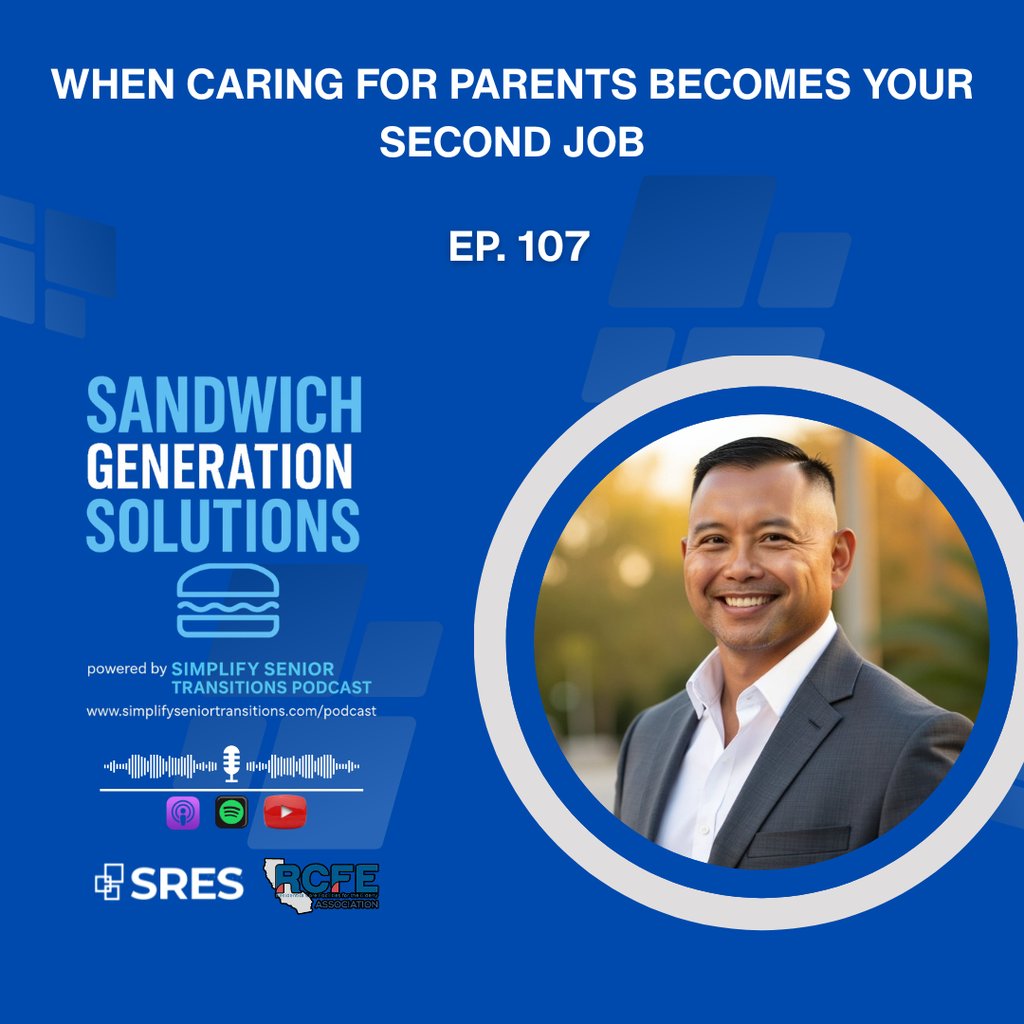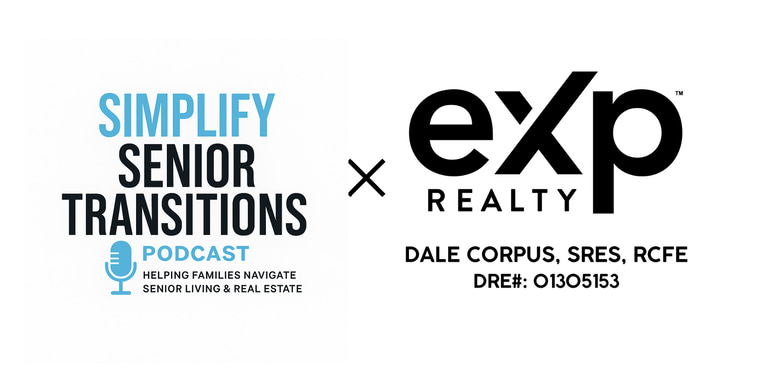Burnout, Boundaries, and Balance
The Ultimate Bay Area Guide for Sandwich Generation Caregivers
Dale Corpus
11/2/20253 min read
When Caring for Your Parents Becomes Your Second Job: A Bay Area Caregiver’s Survival Guide
If you are part of the Sandwich Generation — juggling the demands of your career, your own family, and the increasing needs of your aging parents — you know the feeling. You wake up early, rush to work, constantly check your phone for calls from mom’s doctor, and then drive across the Bay Area after work to help dad with groceries or medications.
By the time you get home, you are completely drained, realizing that this isn't just helping out anymore; it’s your second full-time job.
The truth is, many Bay Area families are silently struggling with this imbalance. In a region where careers are demanding and commutes are long, balancing all these responsibilities becomes nearly impossible.
Here’s What You’ll Learn in This Episode
This episode of Sandwich Generation Solutions, powered by the Simplify Senior Transitions Podcast, shares actionable strategies to help families navigate aging, caregiving, and senior housing transitions with less guilt and more clarity.
You'll learn how to:
Recognize the signs of caregiver burnout
Access critical professional resources (including programs like IHSS and PACE)
Shift your role from exhausted primary caregiver back to being a supportive daughter or son
We focus on building support before burnout breaks you.
Recognizing the Red Flags of Caregiver Burnout
More than 53 million Americans are unpaid family caregivers — many of them, just like you, are working professionals and parents.
You’re managing medical appointments, coordinating prescriptions, and handling paperwork — essentially doing two jobs but getting paid for one and thanked for neither.
Caregiver burnout creeps in slowly. It's an emotional fatigue that builds until you’re running on fumes.
It’s vital to recognize the red flags that indicate it’s time to take action and secure support:
😴 Constant Exhaustion: You’re tired no matter how much you sleep.
😠 Irritation: You find yourself easily frustrated with your parents, spouse, or coworkers.
💼 Work/Life Changes: You’ve had to reduce hours or take time off work.
🙁 Withdrawal: You’ve stopped doing things you enjoy or started isolating yourself.
💔 Guilt Cycle: You feel trapped or resentful — and then guilty for feeling that way.
If you checked even one of these boxes, it’s time to create a plan before that exhaustion leads to a breakdown. Remember: you can’t pour from an empty cup.
Shifting from Guilt to Clarity
Many adult children think they’re just “helping out,” but if you are coordinating medications, attending doctor visits, or managing daily tasks for a parent, you are a caregiver.
Recognizing this fact is powerful because it allows you to ask for help, access resources, and move forward with clarity instead of guilt.
Caregiving shouldn’t be a solo mission. Start building your support team by listing every single task you currently handle — from meals and rides to bills and appointments. Then, decide what you can delegate, whether it’s finances handled by a sibling or a weekly check-in from a neighbor.
Finally, bring in professional support. This might include:
🏠 Home care or adult day programs
👩⚕️ A care manager to coordinate services
🧾 State programs like IHSS, MSSP, CBAS, PACE, or MasterCare (CalAIM) — which may cover part of the care costs.
These are often overlooked resources by families in Contra Costa, Alameda, and Santa Clara counties.
Navigating the Transition: Home, Care, and Boundaries
Burnout accelerates when caregiving responsibilities start collapsing your own life. Protect your boundaries — it’s not selfish, it’s survival.
For Bay Area families — whether in Fremont, Oakland, San Jose, or Marin — transitions often involve major life decisions like downsizing or selling a senior’s home. Meeting with a Senior Transition Specialist early can help you plan next steps: touring assisted living communities, understanding care costs, and navigating the real estate process.
You don’t have to wait for a fall or hospitalization to seek guidance.
Every caregiver needs time off to recharge. Taking a break isn’t abandoning your parent — it’s extending your ability to care for them long-term.
For respite, explore adult day programs or short-term stays in assisted living communities in Contra Costa, Alameda, and Santa Clara counties.
Take the example of Maya from Fremont. After months of juggling work and caregiving, she reached out for help, got connected with a care manager, and used an adult day program. Eventually, she found an assisted living option that matched her mom's needs.
Now, she visits her mom as a daughter, not a caregiver.
As Maya put it:
“I have my life back, and mom’s thriving.”
That’s the power of professional support.
Caring for Your Parent Doesn’t Mean Losing Yourself
If your loved one is considering senior living and you need to figure out what to do with their home, let’s talk.
📞 Schedule a FREE consultation: www.simplifyseniortransitions.com
🎧 Listen to the full episode on Spotify, Apple Podcasts, or YouTube for more actionable strategies and real stories.
📲 Have a question? DM Dale on Instagram: @soldbydale
📩 Got news or a story to share? Email us at dale.corpus@exprealty.com — you might be featured in our next episode!
Watch The Podcast Here



Transitions Made Simple
Helping seniors transition with ease and peace.
📍 Serving the San Francisco Bay Area
📞 GET IN TOUCH
📬 STAY INFORMED
Dale Corpus, SRES, RCFE
📱 925-380-1657
📧 dale@simplifyseniortransitions.com
🕓 Available for free 15 min consultations by appointment
© 2026. All rights reserved.
Sign up for monthly senior transition tips & real estate insights.
